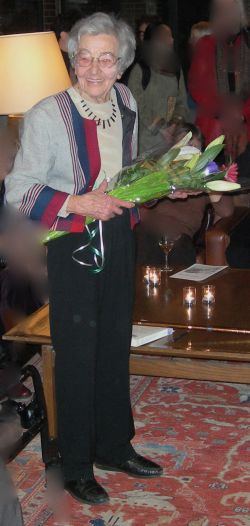Halifax Media Co-op
News from Nova Scotia's Grassroots
Wikipedia revolution
A recent satirical piece from NewsBiscuit poked fun at obsessive nerds who habitually post arcane facts to Wikipedia articles.
"A slightly creepy loner who has been frightening women in his neighbourhood by hanging around their houses and trying to talk to them about military history and Star Wars has been ordered by a judge to serve his community service on Wikipedia," the article began.
The judge's sentence gave the "loner" something constructive to do while potentially communicating with women on Wikipedia discussion pages. As the judge himself pointed out: "That’s what’s so wonderful about user generated content sites; it keeps all those fixated males at home with their computers, instead of having them out and about, freaking out the rest of us."
The story made me laugh, but I also winced, having spent hundreds of hours contributing to Wikipedia myself. I started in September 2007, innocently making a few minor additions to what was then, a brief entry on Harold Innis. It was a bit like getting hooked on cocaine. Every time I pressed the Save button, I got a big rush as my changes appeared. Now the whole world could read what I had discovered about the obscure Canadian communications scholar who inspired my pop culture hero Marshall McLuhan.
My Innis article eventually got so detailed that I took the advice of a helpful and kind Wikipedia editor known as Awadewit and created subpages on Innis's communications theories and his economic ideas. I even tried summarizing his all-but-unreadable tome, Empire and Communications. (After more than a year of sweats and headaches, I'm now pausing for a breather in chapter five as Innis's Roman Empire speedily rises and falls.)
With Awadewit's encouragement, I submitted Harold Innis for "good article" status and then successfully, for the much-coveted designation as "featured article." There are only 2,507 featured articles in the English-language version of Wikipedia at the moment and yes, I know I'm boasting, but I've created three of them. I also got the small, bronze, featured-article star affixed to the upper right-hand corner of the page for the entries on the dead Nova Scotia premier, Angus L. Macdonald and the very-much-alive, pacifist-feminist-physicist, Ursula Franklin.
The Wikipedia editors selected Harold Innis as featured article of the day on June 2, 2008 while Ursula Franklin finally made it onto the encyclopedia's main page just last week, on May 7th. Will Angus L. (whose grave in Lower Sackville's Gate of Heaven cemetery I still occasionally haunt) ever get his moment in the sun? After appearing on the main page, Ursula Franklin has already scored more than 32,000 hits this month, up from a mere 1,139 in April. Poor Angus L., on the other hand, is still in the shade with 351 hits so far in May and 841 in April.
I know. Wikipedia obviously has its weaknesses. Articles vary in quality and vandals frequently try to sneak obscenities or invented "facts" into the better-known entries. However, contributors are always beavering away improving entries and most of the vandalism soon gets removed by human editors or roving robotic ones.
Wikipedia's great strength lies in its community spirit and the endless work of its thousands of unpaid volunteers. It's a living demonstration that human beings are inherently, perhaps even obsessively, co-operative. And, as Ursula Franklin herself might say, Wikipedia shows that technology can be used creatively to liberate people, not just to exploit or enslave them.
The site for the Halifax local of The Media Co-op has been archived and will no longer be updated. Please visit the main Media Co-op website to learn more about the organization.



